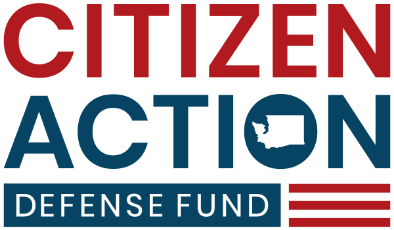
Smug (adj): highly self-satisfied
NOTE: This is the second in a three-part series, ahead of the new year, that will shine a light—or several—on some of the more contentious political and policy fights ahead. Part II/III discusses some of AG Ferguson’s most prominent—and controversial—public fights, and what it might portend for his approach as governor.
Last week, Part I/III discussed next year’s legislative fights and some signs that voters are turning back to policy as the primary drive behind candidate choice. This week, we turn to AG Bob Ferguson, who is slated to take office January 15, 2025 as Washington’s 24th governor (though the 23rd person to occupy the office, courtesy double-dipper Arthur B. Langlie (1941-1945; 1949-1957)). His tenure as attorney general has covered the entire “Inslee Era” [shudder]. And, like the I-man’s himself, Ferguson’s time as the Evergreen state’s chief law enforcement officer has not been without controversy. At several key junctures, Ferguson and his team chose to focus their considerable heft on “issues” that few voters would rally behind. I know, I know—but he won! Well, I doubtless have to remind my politically savvy readers that there is much more at play in elections than a pol’s pesky policy preferences. (Though, as discussed in last week’s post, the results of the presidential election offer signs that voters are choosing policy -or at least the “policyesque”- over raw tribalism.)
Among the highlights from his time as attorney general, Ferguson:
- Sued a charity-focused thrift business—which in just recent years have donated over half a billion dollars to eleemosynary causes—and costing Washington taxpayers at least $4.3 million in the process.
- Lost a tribal lawsuit at the U.S. Supreme Court resulting in billions of cost to the state for the removal of existing culvert infrastructure.
- Distributed funds from a settlement with a consortium of canning companies to thousands of households who were not eligible—with his name prominently affixed to the checks—in a thinly veiled attempt to grease prospective voters’ hands ahead of the gubernatorial race.
- Oversaw an agency that often played fast and loose with court rules, including withholding key evidence in a lawsuit against the state claiming negligence for placing a developmentally disabled woman in an abusive care facility.
- And, as his closing salvo, secretly failed to notify proponents about law suits requesting that the courts to remove several initiatives from the November 2024 ballot, whose sponsors were only made aware of the months-long legal maneuver after the Washington Supreme Court refused to go along.
This is just a sampling of Ferguson’s most, shall we say . . . puzzling pushes and omissions, which speaks to his broader tendency to favor base-baiting gimmickry over real, substantive drives to better the lives of Washingtonians—as residents, parents, patients, commuters, and public actors. As Ferguson and his staff pursued matters of such dubious caliber or merit, several trends working against the people of the Evergreen proceeded fairly unabated. Retail thefts skyrocketed, alleged misfeasance at the King County Prosecutor’s Office went unrectified, and took aimless actions against rental property owners both big and small. Again, just a sampling.
Of course, Ferguson’s tenure need not have resembled those of Texas AG Ken Paxton, who also sometimes ditches good governance for gimmickry (albeit of the more right-wing variety). Nor do we expect Ferguson to have served as a wholly apolitical boy scout ala Elliot Ness. But there is a happy medium between politics and policy that any attorney general worth their salt should—properly—thread. AG Ferguson did not succeed in this endeavor. Indeed, it appears he did not even try. With Washington at an inflection point on several fronts—from the ever-worsening housing crisis to credible (and suspiciously secretive) instances of short-arm bargaining between the governor’s Office of Financial Management and public unions—the Evergreen needs, well, not someone who is ever “green” (read: fair-minded), but someone darn near close.
The ultimate proof, as they say, will be in the pudding. Despite his troubled tenure as attorney general, I and many others who did not cast a vote for Ferguson is willing to give him a chance—though, as the fairly desultory character of the preceding paragraphs indicate, we remain doubtful that Governor Ferguson will act any differently. The best we can hope for is a complete about-face turn to the center. The best we can expect is Inslee at his occasional best. Not a promising continuum of possibilities to be sure, but one that CADF and its allies are prepared to upend.
Alki,
Sam Spiegelman

